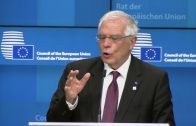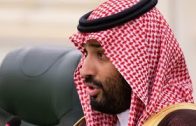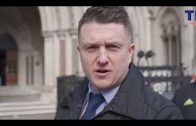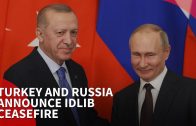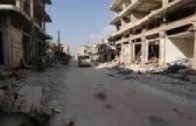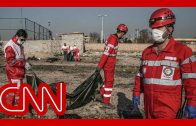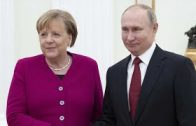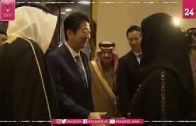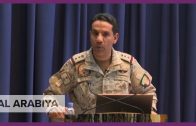US has different idea for JCPoA. EU supports Iran nuclear deal
The 2015 Iran nuclear agreement is breaking apart, raising the risk not just of a nuclear weapons capability for Iran, but also of a military clash in the Persian Gulf. Under the agreement, formally known as the Joint Comprehensive Plan of Action (JCPOA), Iran dismantled much of its nuclear program and gave international inspectors extensive access to its facilities in exchange for relief from economic sanctions. President Donald J. Trump withdrew the United States from the agreement in May 2018, saying it failed to address Iran’s ballistic missile program and its role in regional wars. The United States reimposed sanctions and moved to wipe out Iran’s oil exports, prompting Iran to resume some of its nuclear activities. Following the U.S. killing of Iranian military commander Qasem Soleimani in January 2020, Iran announced plans to halt most of its commitments to the deal.
US has different idea for JCPoA. EU supports Iran nuclear deal.
EU foreign ministers mandate Josep Borrell to implement a dialogue and ‘find a political solution’. EU Ministers support Iran Nuclear Deal, prefer Diplomatic Solution for Libya and dialogue in Middle East.
EU Ministers of Foreign Affairs attend an extraordinary meeting on 10 January 2020, in Brussels, to discuss current affairs and exchange views on recent events in Iraq, focusing on ways to de-escalate tensions in the region.
Extraordinary Foreign Affairs Council – January 2020
10 January 2020
Josep Borrell
The start of the year was a little bit complicated. The situation is very worrisome. I called this extraordinary meeting of the Foreign Affairs Council in order to have strategic discussions with the 28 Member States about the recent developments in Iran, in Iraq and also in Libya.
In the first part of the meeting, we are going to deal with Libya and there I will also inform the Member States of all the outreach and contacts I have done during these days with almost everybody, including with the Prime Minister of Libya Fayez al-Sarraj who came to Brussels, with the Turkish Foreign Affairs Minister Mevlüt Çavuşoğlu and I will speak again with the Russian Foreign Affairs Minister Sergei Lavrov.
On the Iran issue we will also have discussions with the Secretary General of NATO, Jens Stoltenberg, who has been invited. And I will debrief the Member States about the contacts I have had with the Secretary of State of the United States Mike Pompeo, with the Minister of Foreign Affairs of Iran Mohammad Javad Zarif and with the Prime Minister of Iraq Adil Abd Al-Mahdi.(link sends e-mail)
I think we can have a broad analysis of the situation both with the Secretary General of NATO and with the Special Representative of the United Nations [Secretary-General and Head of the UN Support Mission] in Libya Mr Ghassan Salamé.
After these discussions, I will debrief you on the results, the conclusions and the steps to take.
The Council discussed recent developments in Libya, including the military escalation around Tripoli and, in the margins of the meeting, had the opportunity to be briefed by the UN Special Representative and Head of the United Nations Support Mission in Libya (UNSMIL), Ghassan Salamé.
Ministers expressed their agreement about the need for the EU to engage strongly to avoid that the current crisis spirals out of control, and gave a mandate to the EU’s High Representative for Foreign Affairs, Josep Borrell, to engage with all actors with the objective of moving towards a political solution in the framework of the Berlin process and the UN-led mediated efforts.
Recent developments in Iraq
The Council was briefed on the latest developments in Iraq, including through an informal exchange with the Secretary General of NATO, Jens Stoltenberg.
Ministers were invited to assess the consequences of the recent escalation of tension and major security incidents in Iraq and in the region and discussed the impact of these developments on the international coalition engaged in the fight against Da’esh.
The Council called for urgent de-escalation and maximum restraint. It also condemned every attack on coalition forces engaged in the fight against Da’esh and restated that this fight remains a EU priority.
Foreign affairs ministers stressed their continued support for Iraq’s stability and reconstruction, as well as for the preservation of the Joint Comprehensive Plan of Action (JCPoA), as a key element of the global nuclear non-proliferation architecture. At the same time, ministers called on Iran to go back to full compliance with the JCPoA without delay.
Finally the Council gave a mandate to the EU’s High Representative to carry out diplomatic efforts with all parties to contribute to de-escalation in the region, support political dialogue and promote a political regional solution.
#Iran
#Libya
#EuropeanUnion
#Turkey
#war
#USvsIran
#MiddleEast
#Brussels
#eudebates
